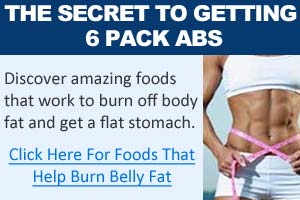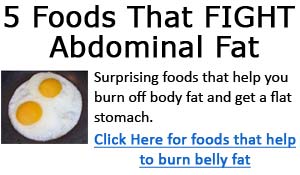If you want to know WHY frequent cardio burns more fat, go back and re-read part three in this series about the mathematics of calorie expenditure (you can read it here: www.fitren.com/res3art.cfm?compid=18&artid=129)
By the way, daily cardio is NOT something you do all the time. This is a strategy you progressively build up to and use for short periods in order to hit a peak, break plateaus and shed the last of the stubborn fat.
Doing daily cardio year round leads to aerobic adaptation. Cardio must be cycled, just like all other factors related to fat loss. You increase cardio during periods when fat loss is desired, and reduce cardio during periods when maintenance is desired.
By the way, 'no time' is not a valid excuse. I know many people who get up at 5 in the morning to work out because it's the only way they can fit it in their schedule. It's never an issue of time, it's always an issue of willingness and priorities. Are you willing to do what it takes for you to get the results you want? Are you willing to make it a priority in your life? That's only real question you have to answer.
DO YOUR CARDIO FIRST THING IN THE MORNING ON AN EMPTY STOMACH
Fasted early morning cardio is still controversial in academic circles, and some people are concerned that it might be too catabolic and you may break down muscle along with the fat. However, my experience and research has shown that while there are risks, fasted early morning does work and the potential benefits outweight those risks when maximum fat loss is your goal.
But don't take my word for it - examine the facts, test it while carefully monitoring body composition and lean body mass, and decide for yourself.
The argument in favor of fasted early morning cardio goes something like this:
1. After an overnight 8-12 hour fast, your body's stores of glycogen are depleted and you burn more fat when glycogen is low.
2. Eating causes a release of insulin. Insulin interferes with the mobilization of body fat. Less insulin is present in the morning; so more body fat is burned when cardio is done in the morning.
3. There is less carbohydrate (glucose) in the bloodstream when you wake up after an overnight fast. With less glucose available, you burn more fat.
4. If you eat immediately before a workout, you have to burn off what you just ate first before tapping into stored body fat (and insulin is elevated after a meal.)
5. When you do cardio in the morning, your metabolism stays elevated for a period of time after the workout is over. If you do cardio in the evening, you burn calories during the session, but you fail to take advantage of the "afterburn" effect because your metabolic rate drops dramatically as soon as you go to sleep.
You can get more details about cardio training for fat loss, including the surprising truth about the "fat-burning zone" in chapter 16 of my ebook, Burn The Fat, Feed the Muscle. Visit www.burnthefat.com for information.
REDUCE YOUR CARBS, BUT DON'T CUT THEM ALL OUT AND DON'T STAY ON LOW CARBS TOO LONG
 I'm not a big fan of very low carb diets (VLCD) or "ketogenic"
diets. Although they have worked for many people, most people
report that they make you feel like crap, you get "brain
fog," you lose muscle along with the fat, and your
training intensity suffers from lack of muscle glycogen
(even on a "cyclical" ketogenic diet). Low carbs
and high activity don’t go well together.
I'm not a big fan of very low carb diets (VLCD) or "ketogenic"
diets. Although they have worked for many people, most people
report that they make you feel like crap, you get "brain
fog," you lose muscle along with the fat, and your
training intensity suffers from lack of muscle glycogen
(even on a "cyclical" ketogenic diet). Low carbs
and high activity don’t go well together.
The worst side effect of the VLCD is one that few people think of because it requires a long-term perspective and most people are caught up in short term results:
For the average non-competitor, it's very difficult to permanently keep the fat off if it’s lost through VLCD’s. VLCD's set you up for a big rebound.
Bodybuilders often use VLCD's successfully before contests, but bodybuilders are extreme athletes with incredible discipline and willpower. I know bodybuilders who are so "hard core" that they can eat nothing but tuna fish out of the can for 12 weeks, then go back to a normal, balanced diet - no problem - no bingeing. That's a rare feat.
Lots of people lose weight on very low carb diets. Few keep it off. I've seen people go on massive, uncontrollable binges of doughnuts, pizza and Ben & Jerry's (Chunky Monkey!), gaining 30 pounds in less than seven days after coming off a very low carb diet.
My friend, very low carb diets ain't the long term solution to fat loss. To use one successfully without gaining everything back, you have to know what you're doing and you must be extremely disciplined. Even then, you should consider low carb diets as "last chance" diets or short term "peaking" diets that are fraught with side effects and disadvantages.
The "balanced" diet, which contains a wide variety of foods including about 40-50% of the calories from vegetables, fruit, natural starches and 100% whole grains, is almost always the best way to permanently lose fat and it's the way almost everyone should start. This is sometimes referred to as a "baseline diet." All you have to do is exercise, pick the right types of foods and eat less than you burn each day and you'll lose fat.
Once you've mastered the basics and you've reached the advanced stage, THEN I have to admit, despite the potential pitfalls, low carb, high protein diets can help accelerate fat loss even more.
Almost every competitive bodybuilder I've ever met uses some variation of the reduced carb diet. Why? Because reducing carbs provides metabolic and hormonal advantages that high carb diets do not. They also eliminate water retention and give the muscles a hard, dry look.
However, there's a right and a wrong way to do the low carb diet. Here are the 4 "advanced bodybuilder's secrets" to using a low carb diet successfully:
1) Don't cut out all your carbs, just reduce them to a moderate level so carbs and protein are balanced and carbs are not the predominant macronutrient. You don't have to cut carbs to next to nothing to get low carb diet benefits.
2) Don't eat a lot of carbs at night, but DO eat natural starches and grains early in the day and after your workouts
3) Don't stay on a reduced carb diet more than 12 to 16 weeks. Always go back to a more balanced diet because it's healthier and more maintainable. Cycle diets like everything else.
4) Take periodic "carb up" days, or "re-feed" days. This will prevent your metabolism from slowing down, keep your thryroid functioning optimally and maintain your energy levels.
To learn more about how a "unique new spin" on the old low carb diet can increase your rate of fat loss to the maximum possible without muscle loss or metabolic downgrade, check out chapter 12 in my e-book, Burn the Fat, Feed the Muscle.
>> Click here for Tom Venuto's Burn the Fat Feed the Muscle program

 If you progressively increase your cardio, as needed, up
to as much as 30-45 minutes a day 6-7 days per week for
8-12 weeks, you'll get so lean, you'll kick yourself for
not realizing it was that simple.
If you progressively increase your cardio, as needed, up
to as much as 30-45 minutes a day 6-7 days per week for
8-12 weeks, you'll get so lean, you'll kick yourself for
not realizing it was that simple. 